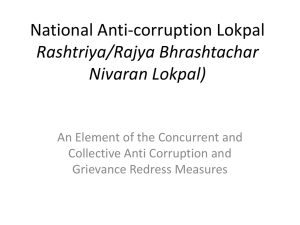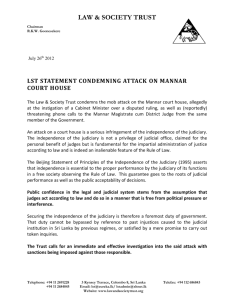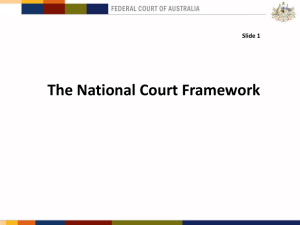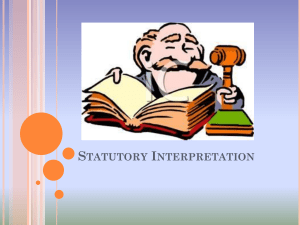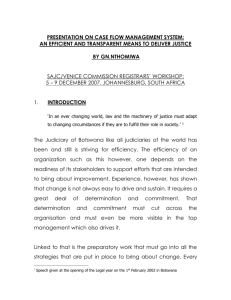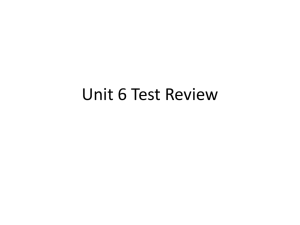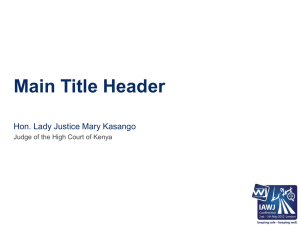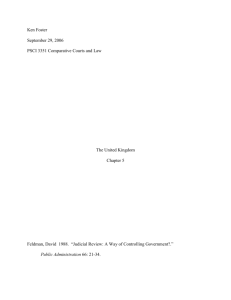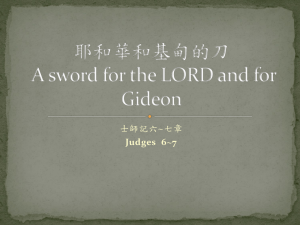Judicial-Accountability-and-Standards
advertisement
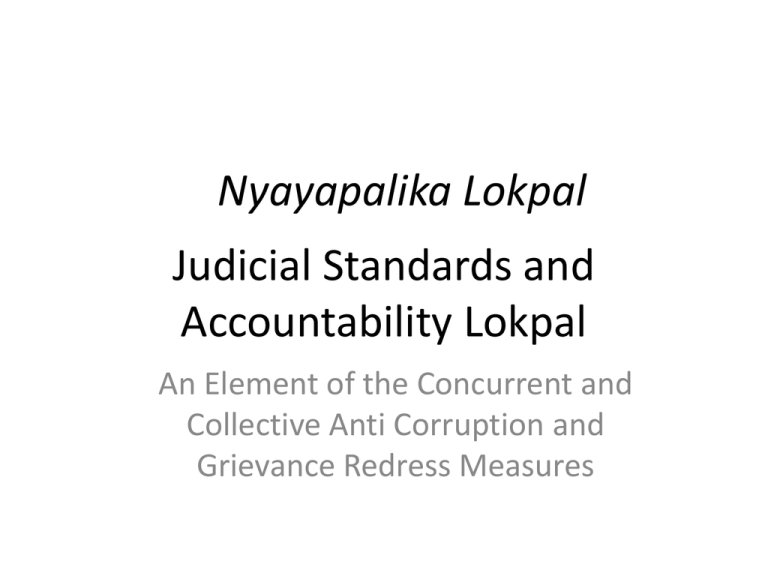
Nyayapalika Lokpal Judicial Standards and Accountability Lokpal An Element of the Concurrent and Collective Anti Corruption and Grievance Redress Measures Provisions for judicial accountability in the govt draft (June 21 version) The Bill does not cover the judiciary Implications – A separate mechanism for dealing with complaints of corruption in the higher judiciary is necessary – The Judicial Standards and Accountability Bill, 2010 (JSA Bill) proposes a framework for addressing this issue – The JSA Bill pending in Parliament can be improved further Objectives • Establish an independent and effective mechanism for dealing with complaints against judges of High Courts and the Court when: about incapacity or misbehaviour –Supreme individuals send complaints – Parliament sends a reference against a judge in relation to an impeachment proceeding • Establish a mechanism for developing and enforcing norms and standards of judicial behaviour Respecting the principle of the independence of the judiciary Structure and Composition The Judicial Standards and Accountability Lokpal: • A permanent body with members working full time with its own scrutiny panel and investigation committees • Chaired by a former Chief Justice of India • A sitting judge of the Supreme Court and a sitting Chief Justice of a High Court may be members • Two eminent jurists may be members from outside the judiciary • Sitting judges selected through seniority principle or nominated by respective collegiums of SC judges and CJs of HCs • Jurists selected by a committee Chaired by the Vice President with the Prime Minister, Chief Justice of India and the Leader of Opposition in the Lok Sabha as members Preferably have constitutional status for ensuring autonomy Powers and Functions • • • • • • Receive, scrutinise and investigate complaints from individuals against judges Report back to the President when grounds for impeachment exist Receive, investigate and report to President on references against judges sent by Parliament Develop and enforce norms and standards of behaviour for SC and HC judges Impose minor measures after due process where misbehaviour is not serious enough to warrant removal Impose simple penalties on complainants where allegations are disproved and malicious intent of the complainant is proved Accountability of the Lokpal • • • Submission of Annual Report to Parliament Facilitates discussion of the Commission’s performance by MPs Decisions on minor measures and other actions not impinging on Parliamentary privilege will be subject to judicial review Processing Complaints and References Lokpal receives complaint from individual Lokpal receives reference from Parliament Examination by scrutiny panel (in camera) Refer complaint/reference to Investigation Committee if so merited Committee proceedings are open Make a report to the President if findings warrant impeachment Close case for reasons to be recorded and communicated in writing publicly Impose minor measures if findings do not warrant impeachment Impose simple fine on complainant when allegation is disproved and if intent was malicious
